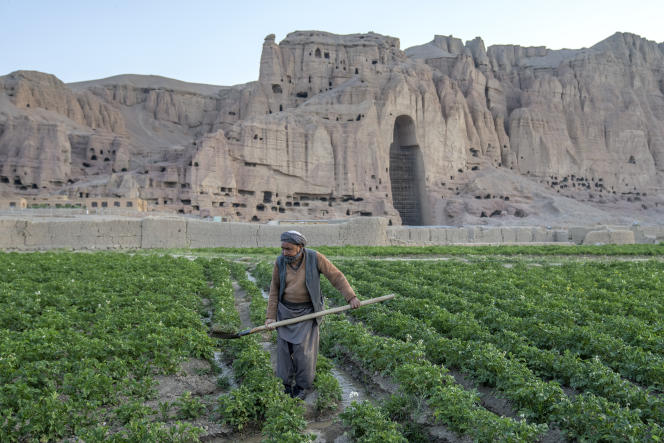Fifty-eight cents for Afghans and 3.47 euros for foreigners… Twenty-two years after the destruction of the three monumental Buddha statues by the Taliban, Bamiyan opens its doors to tourists. Whether the site placed on the list of world heritage in danger by Unesco had become the symbol of political radicalization, the Afghan government now wants to promote a place steeped in history in order to attract visitors from all over the world.
In 2001, the Taliban declared that the Buddhas dating from the VIe century represented blasphemy for Islam. Using explosives, they had destroyed two statues, provoking the indignation of the international community. The attack on this monument had then “illustrated the instrumentalization of political radicalization”, according to Philippe Marquis, director of the French Archaeological Delegation in Afghanistan (DAFA). Today, the discourse has changed among some Taliban leaders. “Bamiyan, and the Buddhas in particular, are of great importance to our government, just as they are to the world”said Atiqullah Azizi, deputy culture minister of the Taliban, in an interview at washington postJune 15.
“The enhancement of Bamiyan will allow [aux nouveaux dirigeants afghans] to convey a better image of the country, but above all to show that the Taliban have evolved”, explains Philippe Marquis. Mawlawi Saifurrahman Mohammadi, director of cultural affairs for the province of Bamiyan, hopes in particular that the tourist attraction around the remains of the Buddha will help revive the economy in the province.
Encourage the return of investments
Surrounded by potato fields, Bamiyan is one of the poorest regions of a country whose economy is struggling to develop. According to Mr. Marquis, the project could prove fruitful. “Tourism within the country is already developing. Many Afghans are taking advantage of the return of security to the regions to discover their heritage. And, ultimately, Afghanistan’s cultural richness could certainly arouse international curiosity.”he points out.
The power is also betting on the enhancement of heritage to encourage the return of investments, suspended by international sanctions. “We urge them to come back as members of the government but also as human beings. This is the legacy of the whole world”Mawlawi Saifurrahman Mohammadi told the washington post. “Afghanistan lacks means and expertise. There is therefore a real urgency for foreign governments to position themselves on the protection of heritage”, notes Philippe Marquis. By August 2021, when the Taliban seized power, most foreign governments had halted archaeological work in the country. The tourist project around Bamiyan represents a test for the Taliban. “The site is extremely fragile. The development of a large tourist area must therefore follow very specific sustainable rules so as not to encourage mass tourism,” indicates the archaeologist.
You have 13.85% of this article left to read. The following is for subscribers only.
